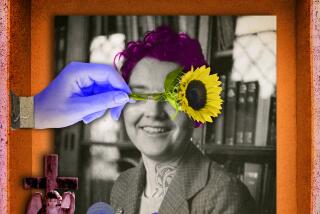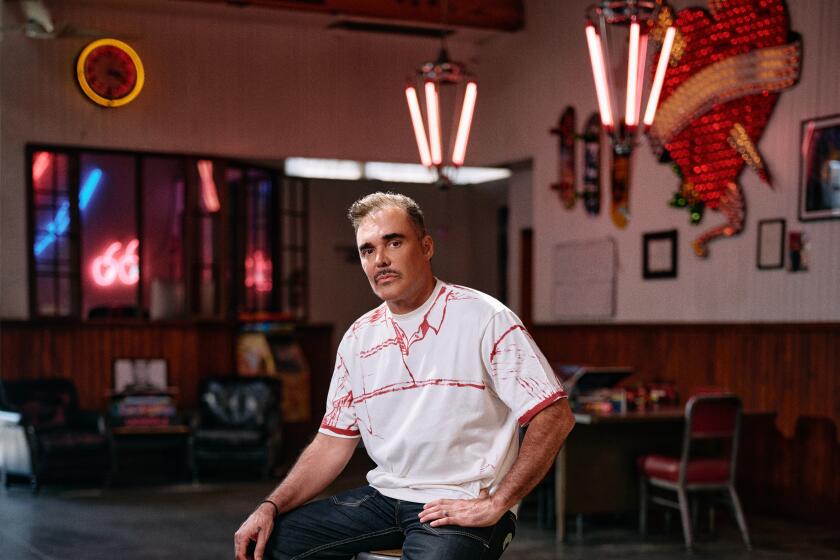Battling different faces of racism
Sherman Alexie did it with his National Book Award winner, “The Absolutely True Diary of a Part-Time Indian.” Now Pulitzer Prize-winning author Oscar Hijuelos is adding his name to the list of literary heavyweights turning their talents to minority-themed, young-adult fiction.
Like Hijuelos’ best-known novel, “The Mambo Kings Play Songs of Love” (1990), “Dark Dude” is about a Cuban living in New York City, only the protagonist is second generation and a teenager. He is also uncharacteristically fair-skinned -- a “dark dude.” According to the definition that kicks off this book for readers ages 12 and up, that’s what “a male of light skin is derisively called by persons of color.”
That description most certainly applies to Rico, a 15-year-old Cuban American with blond hair, hazel eyes and freckles. The New York City teen is often jumped by hoods who think he’s white and, therefore, has money. But he doesn’t. His “Pops” works two jobs to keep the four-person family afloat, and they’re still scraping to get by because Pops likes to drink away his paychecks.
Rico dreams of writing comic books, but those hopes are fading by the day. Both his neighborhood and his high school are plagued by violence and drug abuse and lead to Rico’s decision to run away. Janesville, Wis., may not be the likeliest of destinations for an inner-city Latino teen. But at least it’s a “normal place where people do normal things and you don’t always have to be watching your back,” according to Rico’s Puerto Rican friend Gilberto, who had moved there earlier and rented a dilapidated farm.
The rest of the book tracks Rico’s transition from the big city to Wisconsin’s slow-down-and-watch-the-paint-dry country life and the effects that has on Rico’s identity and attitudes about race. Trading the African American versus Latino racism that he’d experienced in New York City for white versus Latino tensions in the Midwest, he learns that where you are doesn’t change who you are or, for that matter, the basic nature of people.
In a book jacket blurb, Hijuelos said, “This is the kind of book I wish I’d read when I was a teen.” Judging from the era in which “Dark Dude” takes place, it seems Hijuelos has written his first young-adult novel for that teenage self. It’s set in the early 1970s, when Hijuelos was a teenager, though that isn’t obvious from the book’s scenic details or Hijuelos’ lingo, which has a relatable and street-savvy conversational tone.
In fact, “Dark Dude,” with its references to teen drug addiction, school violence, budding sexuality and strong racial themes, feels very much as if it were taking place in the present day.
If race relations are the third rail of public discourse, Hijuelos’ “Dark Dude” at least opens the door for young readers to think about it in the nonthreatening confines of their bedrooms with an open book. Hats off to Hijuelos’ publisher, Atheneum Books for Young Readers, which, in a note to readers at the end of “Dark Dude,” introduces the book as “a new venture” offering “the finest literature of Latino inspiration to the world’s readers, whether they be young adults or young-at-heart adults.”
--
More to Read
Sign up for our Book Club newsletter
Get the latest news, events and more from the Los Angeles Times Book Club, and help us get L.A. reading and talking.
You may occasionally receive promotional content from the Los Angeles Times.










